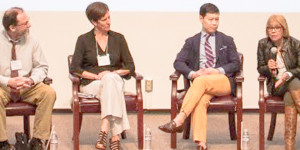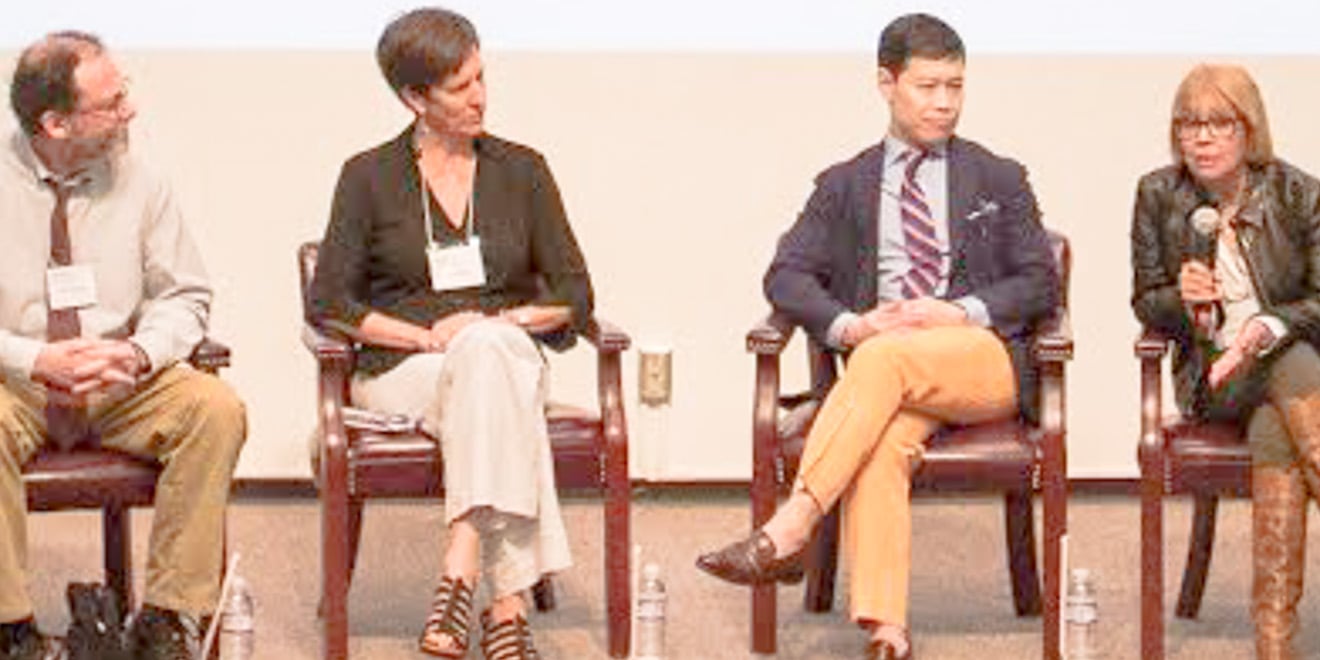
“Getting Played,” Stanford’s “first annual symposium on equity in the entertainment industry and awards” took place on Feb. 21 in Annenberg Auditorium. Leaders in the industry discussed issues of diversity and equality as part of the event, which also honored individuals who have advanced equity in entertainment.
The symposium’s organizer and moderator, Kathleen Tarr, is a lecturer in Stanford’s Program in Writing and Rhetoric. She created the symposium to open up discussion about how the entertainment industry treats and represents people of color.
Her own documentary “Getting Played: Who’s Playing You?” embraced the topic of equity in entertainment, and Tarr wanted to continue that conversation on campus.
Keynote speaker Jeff Chang, author of “Who We Be: The Colorization of America” and executive director of Stanford’s Institute for Diversity in the Arts, opened the event. The panel of entertainment industry leaders that followed represented various fields, including psychology, law, business, social justice and education.
The symposium took place one day before the Oscars; the Academy Awards, in its 87th year, has ignited controversy over its severe underrepresentation of diversity.
From sexualized female characters and characters asked to “act more gay” to “token” actors and actresses who are asked to play roles that fit their racial stereotype, the entertainment industry often risks misrepresentation of our multicolored, diverse society.
Even after almost 90 years, the Oscars have been criticized for caring more about the shade of glamorous dresses on the red carpet than the general lack of color among characters on the big screen.
This year, all actor and actress Oscar nominees were white. All five “Best Director” nominees and five “Best Original Screenplay” nominees were male.
Tarr’s symposium carried out a different kind of awards ceremony. Following the symposium’s panel, she described the need to celebrate everyday heroes who have dedicated their lives toward advancing equity in entertainment but do not usually get public recognition.
Several individuals, including Adrienne Anderson, were presented awards for their contributions to industry equity. Anderson, who has exhibited over 400 independent films, is the founder and curator of the International Black Women’s Film Festival.
“I established the International Black Women’s Film Festival to combat pervasive stereotypes on film that damaged how black women were perceived in the real world,” Anderson said.
The International Black Women’s Film Festival has honored two films produced by the event’s organizer: Tarr herself.
“[The award ceremony] recognized individual efforts toward equity in the industry where these efforts would have gone unnoticed otherwise,” said actress Linda Chuan, who also received an award at the symposium. “It is these small, efforts of individuals that will have the cumulative ability to make impactful ripples.”
Chuan chooses to decline acting roles that stereotype Asians or go against her morals.
Vice Provost Harry Elam concluded the event with a commentary on the symposium’s title “Getting Played.” He explained that the title evokes the current entertainment industry’s command of the remote control – who gets casted, who receives leading versus supporting roles, who is frequently stereotyped.
“I thought it was a powerful symposium for our school,” said audience member Kenna Little ’17. “I was inspired by the stories of real people changing the stories told by the entertainment industry.”
The symposium will take place again next year and will continue to raise questions and discuss solutions around the issue of inequity in the entertainment industry.
Contact Jenna Shapiro at jennshap ‘at’ stanford.edu.
